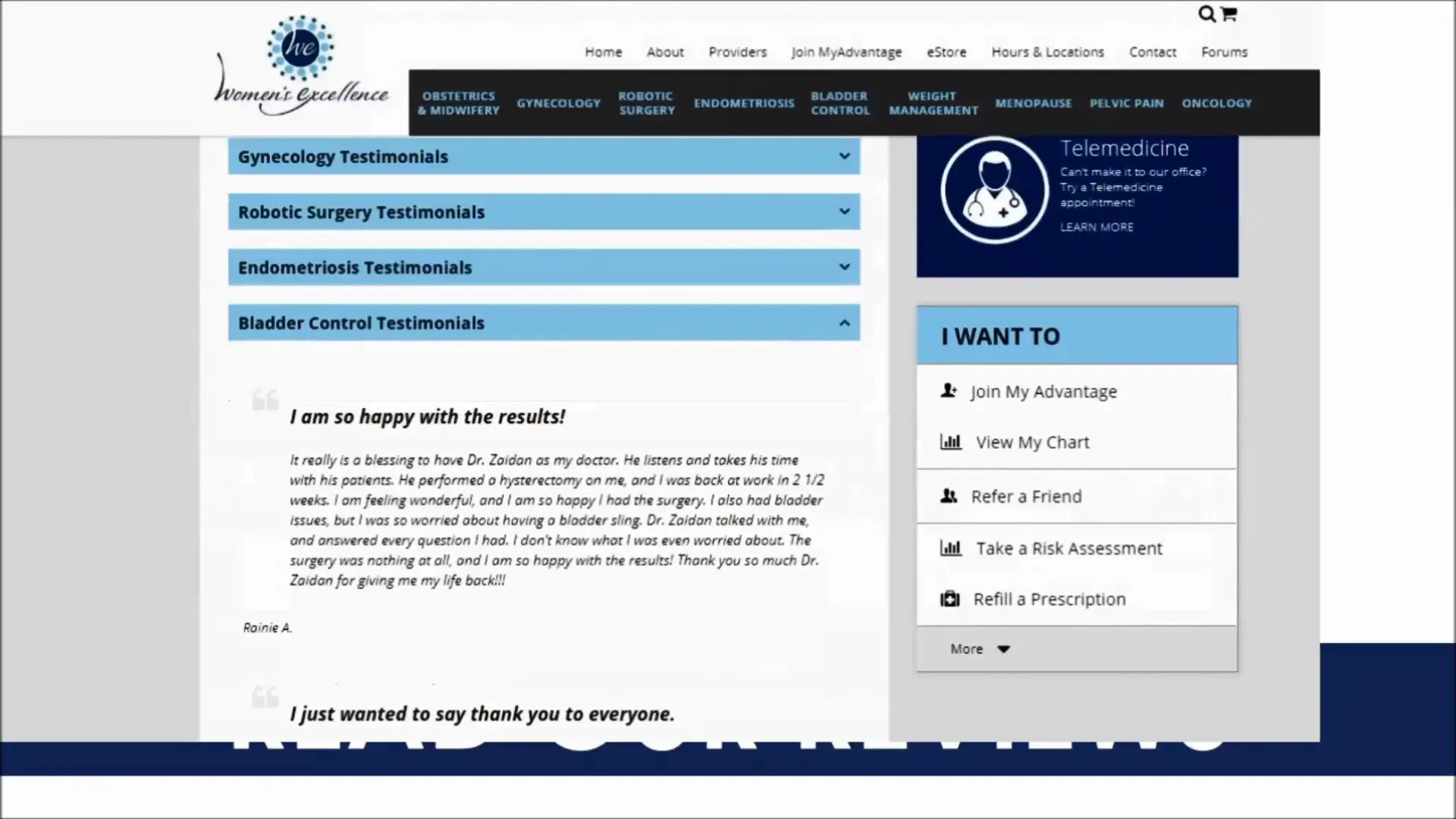1. Hour Glucose Screen in Pregnancy
One of the most common tests during pregnancy is the one-hour glucose test. Sometimes in pregnancy women develop diabetes due to the placenta interfering with insulin use. Gestational diabetes will go away after delivery. We screen all pregnant women for diabetes at 26 to 28 weeks when changes in insulin demands are the greatest. We will also, screen you earlier at 15 to 20 weeks if you have had gestational diabetes with another pregnancy or an immediate family member with diabetes, or had baby with a birth weight of over nine pounds.
Instructions for the Glucose Screen:
- YOU DO NOT NEED TO FAST FOR THIS TEST.
- We recommend you avoid eating foods high in sugar right before the test.
- Tell the front desk staff you are there for a glucose screen test when you sign in. You can drink the glucose and start the test while you wait for the appointment.
- You will be given an orange glucose drink, which is like flat soda. Drink it all within a few minutes. Do not eat or drink anything until after your blood is drawn.
- You need your blood drawn at one hour after you finish the drink. Let someone know if you are in a room and it is time to have your blood drawn.
- If we give you the orange glucose drink to take home, follow instructions 1 and 2.
- You must be in the office for your blood draw one hour after finishing the drink.
- Someone will call you if your glucose level is above 135, which means you will need a three-hour glucose tolerance test to see if you have gestational diabetes. If your glucose is above 190, we will not do a three-hour test because you have gestational diabetes and will be called with instructions. Most glucose screens are normal. If you have an early screen that was normal, you will have another one at 28 weeks.
2. Hour Glucose Screen – 6 weeks post delivery
Make your six week postpartum appointment in the morning. Three days before your six week check up appointment, eat a high carbohydrate diet of potatoes, rice, breads, fruits, and juices, as well as a candy bar or can of regular pop per day. No eating or drinking after midnight before your appointment.
The day of your appointment:
- Check your fasting blood sugar before eating or drinking with your glucometer. Tell your provider the value at your visit so it can be recorded in your chart.
- Drink the 75-gram glucose solution we gave you to keep in your refrigerator.
- Your blood must be drawn in the office exactly two hours after you finish drinking the solution.
- Let the receptionist know what time you need your blood drawn when you arrive.
If your blood sugar level is abnormally high, you may have diabetes. You will need to follow up for treatment with your primary doctor. Diabetes is a serious disease that can be controlled. It affects all your body systems if left untreated. You may not feel sick with diabetes.
If your blood sugar is back to normal, you should have your sugar tested every two years, because you are at risk to develop diabetes later in life. A healthy diet, regular exercise, and having a normal weight for your height could keep you from getting diabetes later in life. You are also at risk to have gestational diabetes with future pregnancies, so let your OB know you had gestational diabetes with a previous pregnancy if you get pregnant again.
3. Day Dietary Preparation for 3 Hour Glucose Pregnancy Test
The three-hour glucose tolerance test is given to determine if you have diabetes during pregnancy. Carefully following the diet instructions below will decrease the possibility of inaccurate results.
Getting Ready:
Eat at least three meals a day starting three days before the test. The meals should contain lots of starches, including carbohydrate foods such as bread, cereal, pasta, grains, rice, beans, starchy vegetables, potatoes, corn, peas, fruit, fruit juice, milk, yogurt, and sweets. Three days before the test, you must also eat and drink extra carbohydrate calories. Each day, eat one of the following in addition to your regular meals:
- 2 slices of bread
- 1 piece of cake
- 1 candy bar
- 1 can non-diet pop
- (food equivalent to 30 grams carbohydrate)
The Night Before Your Test:
After midnight the night before your scheduled test, do not eat or drink anything besides water. Do not smoke, chew gum, eat cough drops, eat candy, or take iron or vitamin pills.
The Test:
In the morning when you come to your appointment a blood sample will be taken. This is your fasting blood sugar. You must drink a cold sweet drink. (Glucola 100gm). Blood samples are taken at one hour, two hours, and three hours after you finish the sweet drink. During the test, you are not allowed to eat or drink anything except water. You may bring a snack to eat after the test is completed.
Please follow the instructions above carefully. It is very important not to “diet” before the test as dieting may cause false results. We will call you with the results ASAP.
Diabetes in Pregnancy
You have gestational diabetes or are a pregnant diabetic. We want to continue to provide you with the best pregnancy care possible, but we need your help.
How will this affect your baby?
- If your sugar is not controlled, your baby may grow to over nine pounds at birth.
- If your sugar is not controlled, your baby will have a high level of sugar in its blood and when it is born, the sugar will drop which could require your baby to need an IV.
- If you were diabetic before pregnancy, your baby could be at higher risk for birth defects for which we will screen.
How will this affect you?
- Gestational diabetes goes away after your baby is born but, you will need a two-hour glucose test to make sure you don’t have diabetes at your six week checkup.
- You may be at risk to develop diabetes later in life or to have gestational diabetes with other pregnancies.
- If you have been diabetic, you know uncontrolled blood sugar can have long term effects on all your organ systems.
Plan of care for your pregnancy.
- You will be asked to follow a diabetic diet explained to you by a dietitian.
- You will need to check your blood sugar with a glucometer four times a day and record the values in a log book. Fasting (before eating in the AM), should be less than 100, and two hours after each meal, should be less than 120. You need to fax (248-693-3683) or bring your log weekly. Call if your sugars are consistently high.
- Starting at 32 weeks, you will come to the office twice a week for monitoring of your baby. This includes a non-stress test once per week and an ultrasound biophysical profile once per week. Your labor may be induced one week early depending on how big your baby gets.
In addition, if you were diabetic before becoming pregnant:
- You may be hospitalized early in your pregnancy for blood sugar control.
- A fetal echocardiogram will be ordered at 20 to 22 weeks to look for heart defects.
- You should have an eye exam by an ophthalmologist and foot exam by a podiatrist.
Genetic Screening/Testing for Birth Defects
Prenatal testing is offered to those at higher risk for birth defects such as:
- Maternal Age 35 or greater at time of birth.
- An abnormal maternal serum screen for Down syndrome, Trisomy 18, and neural tube defects.
- If there is a family history of an inherited disorder or when one of the parents is a carrier for an inherited disorder.
Amniocentesis: This is a procedure done around 15 weeks gestation, where under ultrasound guidance a needle is inserted through the mother’s abdomen into the fetal amniotic sac to withdraw about two tablespoons of amniotic fluid. This fluid is cultured for fetal cells and chromosomes are examined for chromosomal defects and neural tube defects. This test is about 99 percent accurate. The risks are minimal but may include miscarriage, infection, and bleeding. This is considered a diagnostic test.
Non-Invasive Prenatal Test (Panorama): This screen is a blood test from the mother as early as nine weeks gestation but we prefer to do it around 12 weeks. Fetal cell fragments are analyzed for Down syndrome, Trisomy 18, Trisomy 13, and Monosomy X. There is a greater than 99 percent accuracy for the first three conditions and 91.7 percent accuracy for Monosomy X. You will still need a blood test at 15 weeks for screening for open neural tube defects.
These tests only provide information about chromosomal defects and neural tube defects. Other defects such as mental retardation or heart defects are not tested. There is a three to five percent risk of a birth defect without a known cause for all pregnancies regardless of the mother’s age.
If you would like to talk with a genetic specialist regarding your risk factors, you can schedule an appointment at 1-800-975-4819.
Group Beta Strep (GBS)
What is group B strep?
Group B strep (streptococcus) is a type of bacteria that can cause serious illness and death in newborns. Until recent prevention efforts, hundreds of babies died from group B strep every year. This type of bacteria can also cause illness in adults, especially the elderly, but it is most common in newborns.
Why do I need to get tested for group B strep during each pregnancy?
- Group B strep bacteria can be passed from a mom who is a carrier for the bacteria to her baby during labor.
- Since the bacteria can come and go in your body, you need to be tested for group B strep every time you are pregnant, whether you tested negative or positive during the last pregnancy.
- Toward the end of pregnancy, at 35 to 37 weeks, the midwife will swab your vagina and rectum. This is sent to a lab to test for group B strep bacteria.
- The bacteria take a few days to grow, and the results are sent to your doctor.
What happens to babies born with the group B strep bacteria?
- Group B strep is the most common cause of sepsis, or blood infection, and meningitis, an infection of the fluid and lining around the brain, in newborns.
- Most newborn disease happens within the first week of life, called “early onset” disease.
- In the year 2001, there were 1,700 early-onset cases in the U.S.
How can group B strep disease in babies be prevented?
- Most early onset group B strep disease in newborns can be prevented by giving antibiotics through the vein using an IV during labor to women who tested positive during their pregnancy.
- Because the bacteria can grow quickly, giving antibiotics before labor has started does not prevent the problem.
- Any woman who has a positive test for group B strep during this pregnancy should get antibiotics.
- Also, any pregnant woman who has had a baby in the past with group B strep disease, or who now has a bladder or urinary tract infection caused by group B strep should get antibiotics during labor.
What if I’m allergic to some antibiotics?
- Women who are allergic to some antibiotics, such as penicillin, can still get other types of antibiotics.
- IF YOU THINK YOU ARE ALLERGIC TO PENICILLIN, TALK WITH YOUR PROVIDER.
How does someone get group B strep?
- Anyone can be a “carrier” for group B strep. The bacteria are found in the gastrointestinal tract and may move into the vagina and/or rectum.
- It is not a sexually transmitted disease (STD).
- About 1 in 4 women carry these bacteria.
- Most women would never have symptoms or know that they had these bacteria without a test during pregnancy.
If I know that I’m a group B strep carrier, why can’t I just take some antibiotics now?
- For women who are group B strep carriers, antibiotics before labor are not a good way to get rid of group B strep.
- Naturally, GBS live in the gastrointestinal tract, the bacteria often come back after antibiotic treatment.
- Antibiotics during labor are effective at protecting your baby because they greatly reduce the number of bacteria the baby is exposed to during labor.
- Even if you had IV antibiotics for your last baby, you may not need them for this pregnancy if you are not a carrier now.
- That’s why it’s important to get tested during every pregnancy.
What do I need to do during pregnancy or labor if I’m group B strep positive?
- Talk with your provider and create a labor plan that includes getting antibiotics for group B strep prevention in your newborn
- When your water breaks, or when you go into labor, make sure to get to the hospital at least four hours before delivery to make sure there is enough time for the antibiotics to work.
- When you get to the hospital, remind the staff that you are group B strep positive.
Non-Stress Test (NST)
We would like you to eat before the test because some babies move more after their moms have eaten. You will also be more comfortable if you empty your bladder before the NST.
Doppler Ultrasound Studies
Ultrasound studies that determine the blood flow through the umbilical cord to help assess the wellbeing of your baby.
Cord Blood Banking
If you are interested in umbilical cord blood banking, the healthcare providers at Women’s Excellence in Obstetrics and Gynecology can answer questions at your visit. The hospital that you will use for your birth experience are trained and familiar with cord blood banking. If you are considering cord blood banking please let our office know so that we can anticipate this need for your delivery. You can enroll anytime during your pregnancy, but the earlier you do so, the more time you will have to receive the collection kit. When choosing which facilities to utilize for storing your child’s cord blood cells, it’s important to ask questions and research your decision carefully.
Tests during pregnancy are important to provide proper care. You should get your prenatal care started as early in the pregnancy as possible. Contact us or use our chat today for an appointment.







